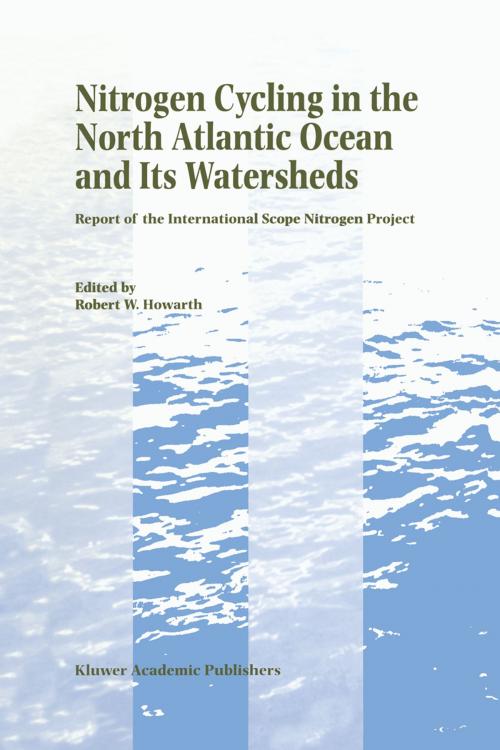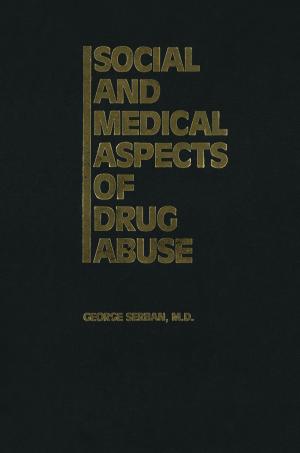Nitrogen Cycling in the North Atlantic Ocean and its Watersheds
Report of the International SCOPE Nitrogen Project
Nonfiction, Science & Nature, Science, Earth Sciences, Biological Sciences, Ecology| Author: | ISBN: | 9789400917767 | |
| Publisher: | Springer Netherlands | Publication: | December 6, 2012 |
| Imprint: | Springer | Language: | English |
| Author: | |
| ISBN: | 9789400917767 |
| Publisher: | Springer Netherlands |
| Publication: | December 6, 2012 |
| Imprint: | Springer |
| Language: | English |
Human activity has dramatically altered the global nitrogen cycle in recent decades. These changes are not evenly distributed around the world; rather, they are greatest in regions of significant industrial and agricultural activity, as the synthesis and use of inorganic fertilizers, cultivation of legumes, burning of fossil fuels, and the simple act of concentrating humans and animals in dense populations all lead to the release of excess, reactive forms of nitrogen into the environment. In part because reactive nitrogen is frequently a limiting nutrient in many terrestrial and aquatic systems, an excess can lead to a variety of adverse effects on both environmental and human health.
The North Atlantic Ocean and its contributing watersheds constitute a region which has seen perhaps the greatest increase in anthropogenically-derived nitrogen. In May of 1994, the International Scope Nitrogen Project, with funding from the Andrew Mellon Foundation, the United Nations Environment Program, and the World Meteorological Organization, sponsored a workshop held on Block Island, RI, USA, entitled `Nitrogen Dynamics of the North Atlantic Basin'. More than 50 scientists from 12 different countries convened with a unique set of goals: an integrated and comprehensive estimate of the current nitrogen cycle of the ocean, coastal systems, and contributing watersheds of the North Atlantic region; an analysis of human-induced changes to those cycles; and an assessment of the current and future effects of human-induced changes to nitrogen cycling throughout the globe.
Human activity has dramatically altered the global nitrogen cycle in recent decades. These changes are not evenly distributed around the world; rather, they are greatest in regions of significant industrial and agricultural activity, as the synthesis and use of inorganic fertilizers, cultivation of legumes, burning of fossil fuels, and the simple act of concentrating humans and animals in dense populations all lead to the release of excess, reactive forms of nitrogen into the environment. In part because reactive nitrogen is frequently a limiting nutrient in many terrestrial and aquatic systems, an excess can lead to a variety of adverse effects on both environmental and human health.
The North Atlantic Ocean and its contributing watersheds constitute a region which has seen perhaps the greatest increase in anthropogenically-derived nitrogen. In May of 1994, the International Scope Nitrogen Project, with funding from the Andrew Mellon Foundation, the United Nations Environment Program, and the World Meteorological Organization, sponsored a workshop held on Block Island, RI, USA, entitled `Nitrogen Dynamics of the North Atlantic Basin'. More than 50 scientists from 12 different countries convened with a unique set of goals: an integrated and comprehensive estimate of the current nitrogen cycle of the ocean, coastal systems, and contributing watersheds of the North Atlantic region; an analysis of human-induced changes to those cycles; and an assessment of the current and future effects of human-induced changes to nitrogen cycling throughout the globe.















